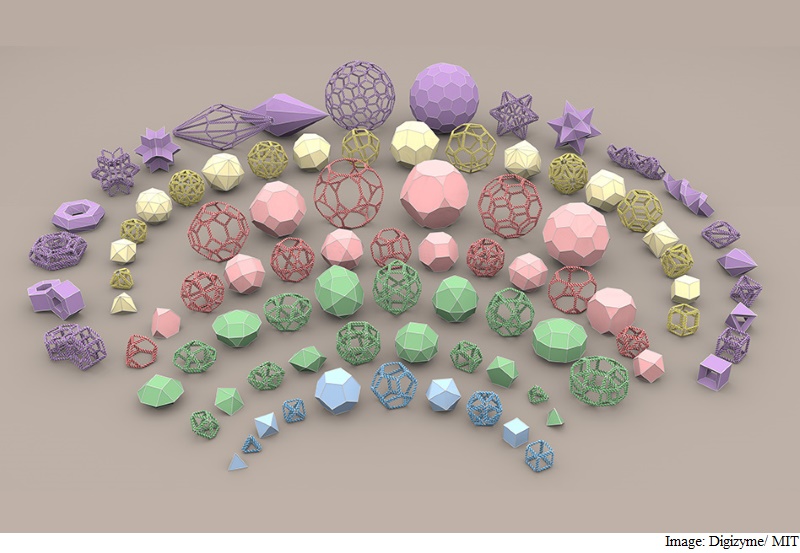
Researchers can build complex, nanometre-scale structures of almost any shape and form, using strands of DNA. However, these particles must be designed by hand, in a complex and laborious process.
This has limited the technique, known as DNA origami, to just a small group of experts in the field.
Unlike traditional DNA origami, in which the structure is built up manually by hand, the algorithm starts with a simple, 3D geometric representation of the final shape of the object, and then decides how it should be assembled from DNA, according to Mark Bathe, associate professor at Massachusetts Institute of Technology (MIT), who led the research.
The technique may be used to develop nanoparticles for a much broader range of applications, including scaffolds for vaccines, carriers for gene editing tools, and in archival memory storage.
"The paper turns the problem around from one in which an expert designs the DNA needed to synthesise the object, to one in which the object itself is the starting point, with the DNA sequences that are needed automatically defined by the algorithm," Bathe said.
"Our hope is that this automation significantly broadens participation of others in the use of this powerful molecular design paradigm," he said.
The algorithm first represents the object as a perfectly smooth, continuous outline of its surface. It then breaks the surface up into a series of polygonal shapes.
Next, it routes a long, single strand of DNA, called the scaffold, which acts like a piece of thread, throughout the entire structure to hold it together.
The algorithm weaves the scaffold in one fast and efficient step, which can be used for any shape of 3D object, Bathe said.
"That step is a powerful part of the algorithm, because it does not require any manual or human interface, and it is guaranteed to work for any 3D object very efficiently," he said.
The algorithm, which is known as DAEDALUS (DNA Origami Sequence Design Algorithm for User-defined Structures) after the Greek craftsman and artist who designed labyrinths that resemble origami's complex scaffold structures, can build any type of 3D shape, provided it has a closed surface.
The study was published in the journal Science.
For the latest tech news and reviews, follow Gadgets 360 on X, Facebook, WhatsApp, Threads and Google News. For the latest videos on gadgets and tech, subscribe to our YouTube channel. If you want to know everything about top influencers, follow our in-house Who'sThat360 on Instagram and YouTube.